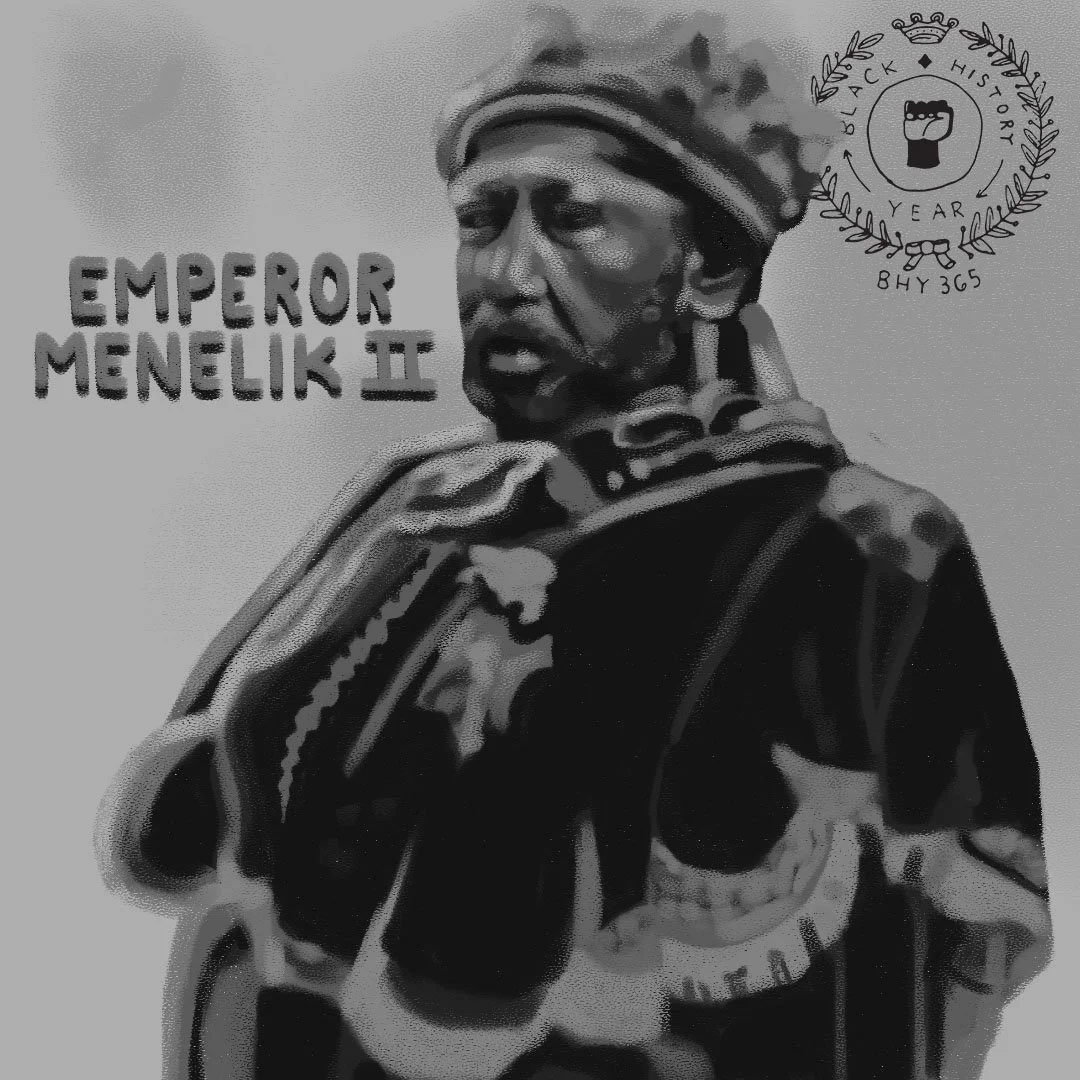Ethiopia’s history is so rich. We usually hear about the benevolent ruler Haile Selassie, upon further digging you’ll find his legacy is a little more nuanced than that. However, Emperor Menelik II is someone we should know about just as much if not more than the popular Haile Selassie. In 1896, Ethiopia fended off an invading Italian army and secured its independence — Menelik and his wife, Taytu Betul, a shrewd opponent of European expansionism, prepared to defend their sovereignty. In addition to securing modern weapons, they launched a public relations campaign with the help of several Europeans sympathetic to their cause. With the Italians presenting a common threat, Menelik united the country’s fractious provincial rulers behind him. When he called for a mass mobilization in September 1895, he was able to raise around 80,000 to 120,000 troops, with men pouring in from almost all of Ethiopia’s regions and ethnic groups, this was obviously after his rise to power. His rise included a path of destruction of rival Ethiopians, their mosques, and pillaging of their towns. By March 1st the end of day Italian troops were in full retreat, leaving behind their artillery and roughly 3,000 prisoners. Overall, the Ethiopians inflicted a casualty rate of up to 70 percent (while also suffering relatively heavy losses). They brought the Italian prisoners back to Addis Ababa, in what Jonas calls a “racial turning of the tables that put whites at the mercy of blacks in significant numbers for the first time.” Treated well, they were gradually released, whereas, in contrast, the Africans fighting alongside the Italians purportedly had their right hands and left feet amputated. Italy’s ruler was trialed…and acquitted, their government collapsed, but under Mussolini, they later returned to occupy Ethiopia through more warfare. We know war is hell. Despite racism they learned the hard way to take “African’s much more seriously.” Emperor Menelik’s rule is said to have inspired the concept of Wakanda. War aside, his reign, which began after the death of Yohannes IV, was marked by significant territorial expansion and modernization efforts, including the establishment of Addis Ababa as a new capital. He implemented economic and diplomatic strategies that fostered a unique cultural identity within Ethiopia, promoting religious tolerance and integrating diverse regions into a cohesive empire. Menelik II's legacy remains influential in shaping Ethiopia's identity and governance. BIG UP!

